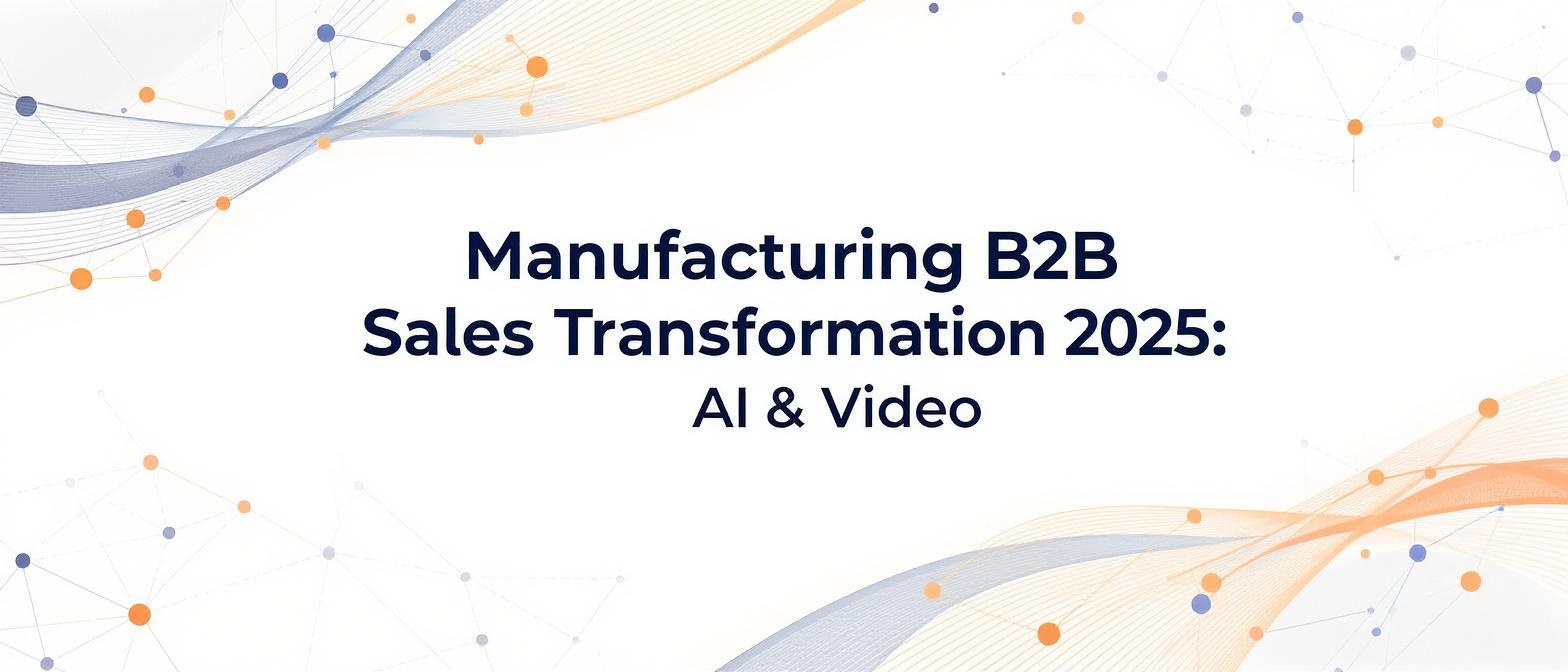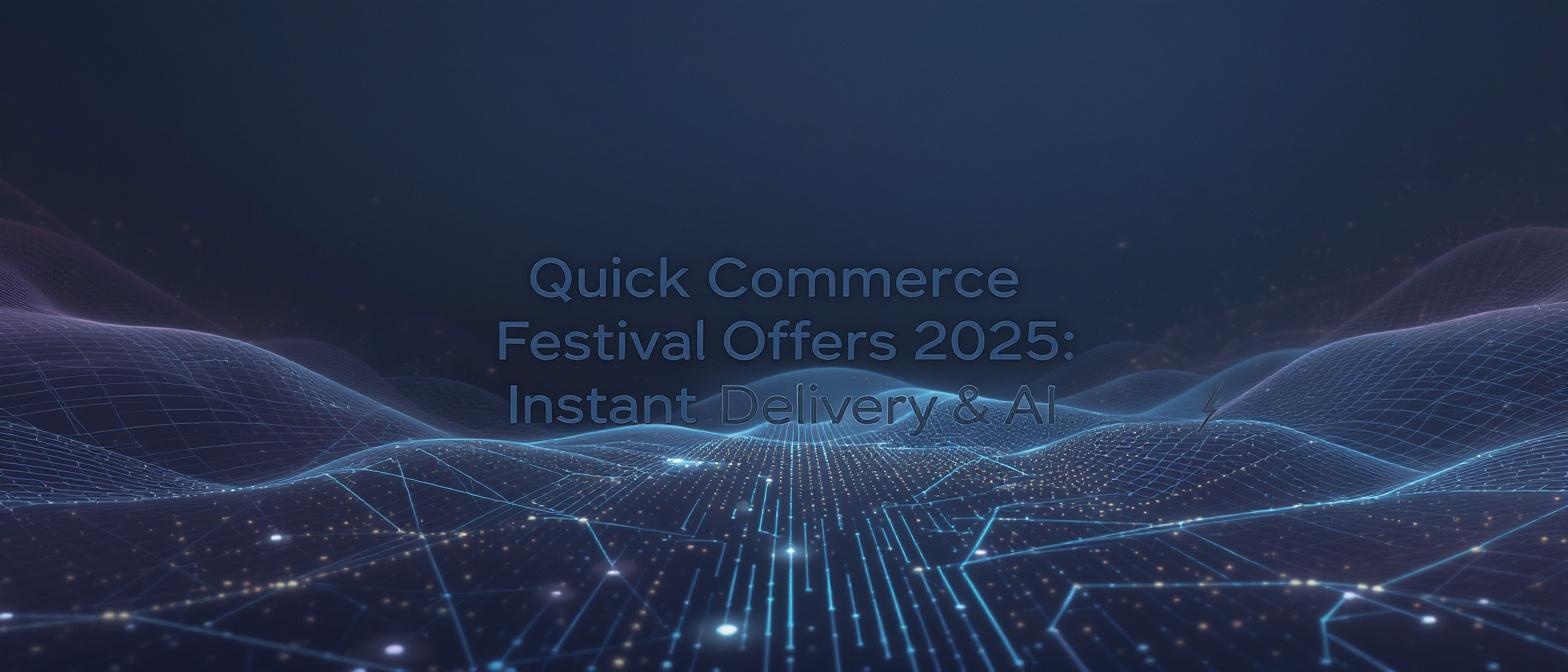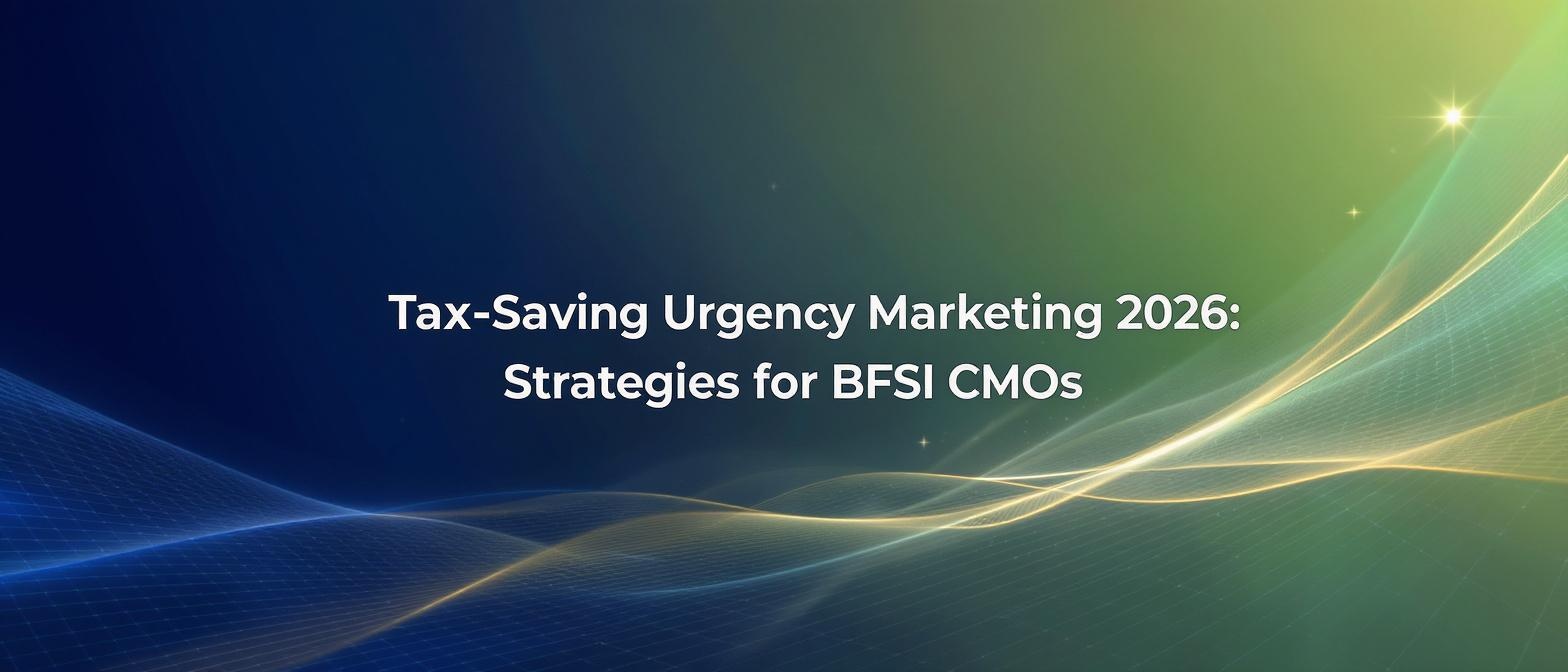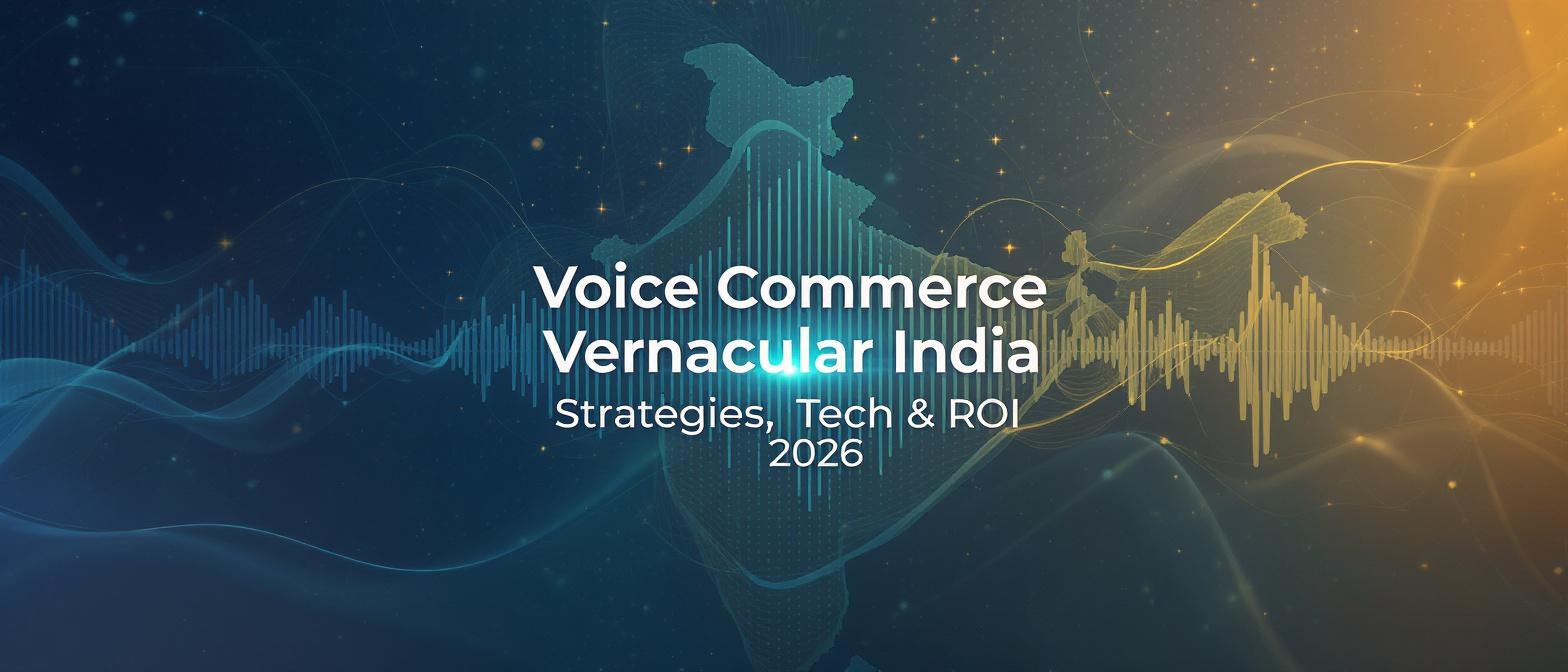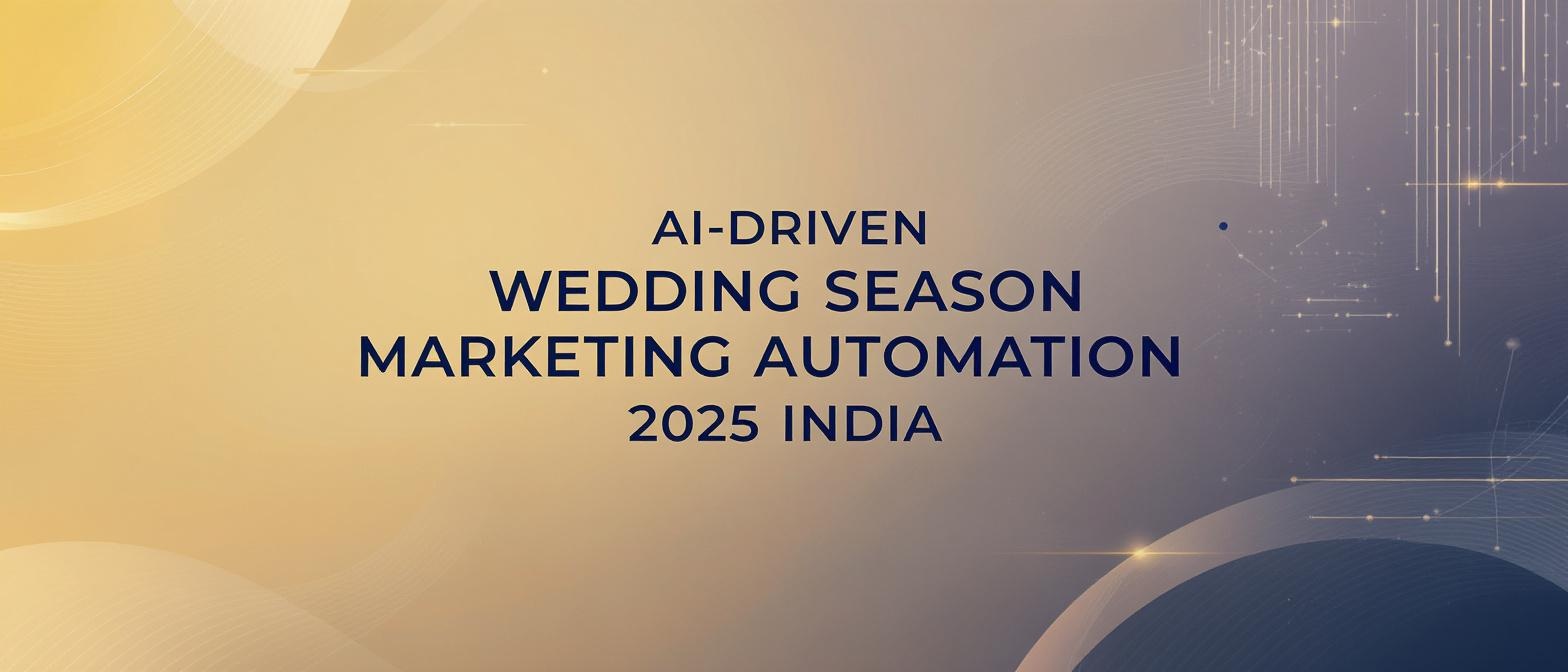Manufacturing B2B Sales Transformation 2025: AI-Powered Video Personalization Reshaping Industrial Engagement
Estimated reading time: ~8 minutes
Key Takeaways
- AI-driven dealer engagement platforms and personalized video are redefining B2B manufacturing sales
- Automation across sales and supply chain networks ensures seamless communication and higher ROI
- Effective video strategies simplify complex machinery demos, accelerate decision-making, and foster trust
- Adopting AI marketing solutions empowers manufacturers to deliver predictive, hyper-personalized campaigns
The bedrock of industrial commerce is shifting. Manufacturing B2B sales transformation 2025 refers to the industry-wide shift toward AI-driven, hyper-personalized digital engagement and automation in dealer networks and supply chains. This is not a distant forecast; it is a present-day reality reshaping how industrial giants connect with their partners and customers.
The year 2025 stands as a pivotal moment in this evolution. The digital transformation journey in manufacturing has reached a new stage of maturity, where artificial intelligence is no longer experimental but a core component of competitive strategy. Concurrently, B2B buyers, influenced by their consumer experiences, now demand frictionless, one-to-one video interactions that traditional sales models cannot deliver at scale.
This article serves as a comprehensive guide to this new landscape. We will explore how personalized video, sophisticated automation platforms, and intelligent AI marketing solutions are converging to modernize every facet of the B2B sales process. From dealer engagement to supply chain communication, the future of industrial sales is intelligent, automated, and deeply personal.
1. Digital Transformation in the Industrial Sector: The New Operational Blueprint
Digital transformation in the industrial sector is the strategic integration of digital technologies like AI, unified CRM systems, IoT, and video into every facet of manufacturing operations. This evolution moves beyond simple digitization, fundamentally rewiring processes to enhance efficiency, foster innovation, and create new value streams. It is about building a connected, intelligent ecosystem where data flows seamlessly from the factory floor to the end customer.
The primary benefits are profound and immediate. Manufacturers are witnessing unprecedented gains in operational efficiency, driven by real-time data analysis and predictive maintenance. This digital backbone enables seamless collaboration between previously siloed entities, including field sales teams, dealer networks, and global supply chain partners, creating a unified front.
Within this transformation, video has emerged as a critical communication and trust-building tool. It excels at illustrating complex machinery and processes through virtual plant tours or detailed product demonstrations. Furthermore, video serves as a powerful medium for internal training modules and builds crucial trust in stakeholder communications, making abstract digital concepts tangible and accessible.
Source: https://www.salesforce.com/manufacturing/partner-channel-engagement-software/
2. AI-Powered Dealer Engagement Platforms: Automating the Channel
A manufacturing dealer engagement platform is a centralized, AI-driven digital portal designed to streamline and automate every interaction with channel partners. These sophisticated systems handle inventory management, order processing, technical communications, and even predictive maintenance alerts, moving far beyond the capabilities of traditional partner portals. They are the command center for modern industrial sales networks.
The impact of these platforms is statistically significant. Research shows that manufacturers adopting AI-driven dealer solutions can achieve up to 38% higher backorder fulfillment rates and substantial reductions in operational costs. This efficiency is driven by core features like predictive analytics, which forecasts parts demand and optimizes order planning across the entire network.
Key functionalities include 24/7 AI chatbots for instant dealer support, automated workflows triggered by CRM events, and intuitive dashboards for performance tracking. For a real-world example of scaled engagement, consider Hero MotoCorp's initiative, which delivered 2.4 million personalized festive greeting videos to customers, addressing local dealerships and including service invitations to drive tangible action. These platforms often leverage real-time APIs to embed personalized video messages directly into dealer portals, emails, or WhatsApp for immediate and impactful engagement.
Source: https://www.syncron.com/solutions/dealer-parts-planning/dealer-to-dealer/
3. Personalization through B2B Manufacturing Videos: Engaging the Individual
B2B manufacturing personalized videos are hyper-targeted, one-to-one video clips tailored to a specific buyer’s context. This could be their professional role, past purchase history, specific technical queries, or even their plant's geographic location. The goal is to cut through the noise of generic marketing with a message that feels uniquely relevant and valuable.
This level of customization is achieved through a suite of advanced technologies. AI-driven video automation platforms use dynamic content insertion to weave personalized elements—like a customer’s name, company logo, or relevant product images—into a master video template. Cutting-edge techniques like diffusion-based face reanimation even allow for virtual reshoots, changing a speaker's dialogue without needing to film again.
The results are compelling. Personalized video campaigns consistently outperform static content in open rates, click-throughs, and conversion lifts. For instance, travel giant Goibibo saw a 17% higher WhatsApp read rate by using personalized videos. For industrial marketers, this translates to more engaged prospects and a shorter sales cycle. TrueFan AI's 175+ language support and Personalised Celebrity Videos exemplify this capability, making it possible to deliver hyper-personalized messages that resonate globally.
Source: https://www.truefan.ai/blogs/goibibo-case-study
4. Supply Chain Communication Personalization: Precision in Partnership
Personalized supply chain communications involve delivering tailored, context-aware notifications to specific partners within the logistics network. Instead of generic status updates, a partner receives information directly relevant to them, such as precise shipment ETAs, quality control alerts for their specific batch, or updates on parts availability that impact their operations. This approach transforms the supply chain from a linear process into a responsive, interconnected ecosystem.
The benefits are centered on accuracy and speed. By eliminating irrelevant information, manufacturers reduce the likelihood of errors and empower partners to make faster, more informed decisions. This leads directly to improved order accuracy, minimized downtime, and a more resilient supply chain.
A practical case is an automated partner portal that sends dynamic video updates to maintenance engineers. When a critical part becomes available, the system can automatically generate and send a short video showcasing the part, confirming its specifications, and linking to real-time dashboards for ordering. This proactive, visual communication is far more effective than a simple text-based alert.
Source: https://www.syncron.com/solutions/dealer-parts-planning/dealer-to-dealer/
5. Industrial AI Marketing Solutions: The Predictive Powerhouse
Industrial AI marketing solutions are advanced platforms that leverage artificial intelligence to analyze massive datasets, predict buyer behavior, and orchestrate omnichannel campaigns with video as a central component. These systems move marketing from a reactive to a predictive function, anticipating customer needs and delivering the right message at the right moment. They are the engine behind scalable, intelligent B2B engagement.
These solutions encompass a range of tools. AI-powered marketing automation handles the systematic distribution of personalized emails, social media content, and video messages. Meanwhile, advanced data orchestration tools provide real-time performance optimization, allowing marketers to refine campaigns on the fly based on engagement metrics. Platforms like TrueFan AI enable this by providing the scalable infrastructure to generate and distribute millions of unique video assets as part of these orchestrated campaigns.
The strategic advantages are clear. Manufacturers see increased conversion rates by targeting prospects who exhibit predictive buying signals. They can achieve scalable personalization across thousands of accounts, a task impossible to manage manually. Furthermore, performance dashboards offer granular insights into which video scripts, visuals, and calls-to-action are most effective, enabling continuous improvement.
Source: https://impel.ai/blog/the-top-10-ai-compatible-automotive-crms-for-dealerships/
Source: https://www.salesforce.com/manufacturing/partner-channel-engagement-software/
6. Sales Enablement Automation in Manufacturing: Empowering the Sales Force
Sales enablement automation refers to the use of AI-powered tools to streamline and enhance the B2B sales process. These platforms automate time-consuming administrative tasks like lead scoring, proposal generation, and follow-up scheduling, freeing up sales professionals to focus on high-value activities such as building relationships and closing complex deals. It is about equipping the sales team with intelligent tools to work smarter, not harder.
The productivity gains are substantial. Industry analyses indicate that sales teams using AI enablement tools can see a productivity boost of up to 25% and achieve significantly faster issue resolution times. This is because the AI can instantly recommend the most relevant content for a specific buyer, score leads based on their digital behavior, and ensure no opportunity is missed.
Modern platforms offer powerful features like direct API integrations for on-demand personalized video proposals. For example, a sales representative could generate a custom video from their CRM to include in a sales deck, featuring a technical expert addressing the prospect's specific pain points by name. Automated triggers can also be set up, so when a new lead is qualified, a personalized explainer video is automatically sent via email or WhatsApp, ensuring immediate and relevant engagement.
Source: https://impel.ai/blog/the-top-10-ai-compatible-automotive-crms-for-dealerships/
7. B2B Industrial Video Campaign Strategies: Blueprints for Success
In the B2B industrial space, video is not just a marketing tool; it is a strategic asset. It possesses the unique ability to simplify highly complex machinery specifications, build deep institutional credibility, and ultimately accelerate decision-making cycles in a typically long and considered sales process. An effective video strategy is therefore essential for modern manufacturers.
Several key tactics drive successful industrial video campaigns. First, segment campaigns by buyer persona; a video for a procurement officer should focus on ROI and total cost of ownership, while one for a plant manager should highlight operational efficiency and ease of maintenance. Leveraging customer testimonials is also critical, especially when blended with dynamic data insertion—for example, a testimonial video that also displays the prospect's potential plant uptime improvements.
Furthermore, creating educational video series that demonstrate complex maintenance workflows or feature interactive ROI calculators can position a manufacturer as a trusted advisor. Advanced platforms now allow for A/B testing of calls-to-action through virtual reshoots, enabling marketers to optimize messaging and visuals without the high cost and long timelines of traditional re-shoots, ensuring every campaign is tuned for maximum impact.
8. Automating the Manufacturing Customer Journey: A Seamless Experience
Automating the manufacturing customer journey involves mapping every touchpoint—from initial awareness to post-purchase support and renewal—and deploying AI-driven personalization at each stage. This creates a cohesive, responsive, and seamless experience that builds loyalty and long-term value. It ensures that no customer feels like just a number in a vast B2B network.
A variety of tools and methodologies underpin this automation. CRM workflows can be configured to trigger personalized videos for different stages, such as an onboarding video for a new client, a mid-cycle nurturing video explaining advanced features, or a timely renewal reminder. Chatbots on a manufacturer's website can initiate personalized video demos in real-time when a customer asks for specific product specifications.
The most advanced applications use real-time analytics to predict customer churn. If the system detects a drop in engagement or a pattern of support tickets, it can automatically trigger a personalized retention video from a senior account manager or even the CEO, addressing the potential issues and reinforcing the value of the partnership. This proactive approach is a hallmark of a truly automated and customer-centric journey.
Source: https://impel.ai/blog/the-top-10-ai-compatible-automotive-crms-for-dealerships/
9. Videos as a Catalyst for Digital Transformation: Beyond Marketing
Video's role in the industrial digital transformation extends far beyond external marketing. The same technology that personalizes sales pitches can be used for internal communications, training, and operational support, making it a powerful catalyst for enterprise-wide digital adoption. Scalable, personalized video accelerates learning and breaks down communication barriers across global organizations.
The efficiency metrics are staggering. Modern AI video platforms can save thousands of creative hours, with render times of under 30 seconds per video and the ability to deploy campaigns in over 175 languages. This means a single training module can be instantly localized and personalized for every employee in every plant worldwide. Solutions like TrueFan AI demonstrate ROI through these dramatic efficiency gains, saving an estimated 3,888 creative hours for their partners.
Internal use cases are becoming increasingly critical. Personalized video walkthroughs can be used for remote plant training, ensuring safety and procedural consistency without the need for travel. Virtual commissioning of new equipment can also be facilitated through detailed, step-by-step videos tailored to the specific setup of a given facility, speeding up deployment and reducing on-site support costs.
Conclusion: The Dawn of the Intelligent Industrial Sale
The manufacturing B2B sales transformation of 2025 is not a single initiative but a convergence of powerful technologies. AI-powered dealer platforms are creating frictionless channel partnerships. Hyper-personalized video is making every communication relevant and impactful. And automation across the sales and supply chain funnels is unlocking new levels of efficiency and customer-centricity. Together, these elements are forging the future of industrial engagement.
For C-suite executives in the manufacturing sector, the message is clear: the time for incremental change has passed. To stay competitive and capture market share, leaders must embrace this digital evolution. Piloting a personalized video campaign with an enterprise-ready solution is a strategic first step toward understanding its transformative potential.
The path forward requires bold investment in the tools and strategies that will define the next decade of B2B sales. Do not get left behind. Schedule a demo of a leading manufacturing dealer engagement platform or download our detailed whitepaper to begin your transformation journey today.
Frequently Asked Questions
1. What is the first step my manufacturing company should take toward sales transformation?
The first practical step is to audit your existing digital infrastructure, particularly your CRM and partner portal capabilities. Understanding your current data and communication workflows will reveal the most immediate opportunities for integrating AI-powered tools for sales enablement or personalized video engagement. A small pilot project, such as a personalized video campaign for a key account segment, is an excellent way to demonstrate value quickly.
2. How does AI video personalization work without being creepy or invasive?
Effective personalization relies on contextual relevance, not just using personal data. The best platforms use data that the customer has already shared or that is relevant to their business relationship (e.g., past purchases, industry type, stated interests). Transparency is key. The goal is to be helpful and relevant—like a good salesperson would be—not to surprise them with knowledge they did not know you had.
3. Is this technology only for large, multinational manufacturers?
While large enterprises have been early adopters, the technology is becoming increasingly accessible. Many AI and video personalization platforms offer scalable solutions suitable for mid-sized manufacturers. The key is to focus on the highest-impact use case, whether that is improving dealer engagement, automating lead nurturing, or enhancing supply chain communication, rather than trying to transform everything at once.
4. How do you measure the ROI of a personalized video campaign?
ROI is measured through clear, predefined KPIs. Common metrics include A/B testing personalized videos against static emails to measure lift in open rates, click-through rates, and conversion rates. Other measures include sales cycle length (does personalization shorten it?), customer retention rates, and direct feedback from sales teams and dealer networks on the quality of engagement.
5. How can we ensure brand consistency with AI-generated videos?
Leading enterprise video platforms are built with brand governance in mind. Companies can lock down brand assets like logos, color palettes, and fonts within video templates. Platforms like TrueFan AI also allow for script approval workflows and content moderation to ensure every AI-generated video aligns perfectly with brand messaging, tone of voice, and legal compliance standards, ensuring consistency at scale.

